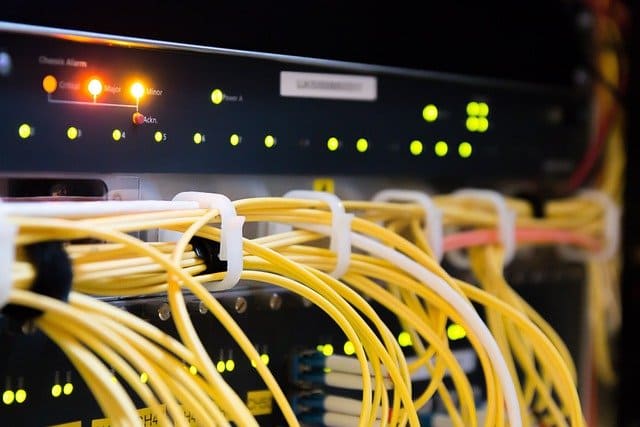Latest Zong and Jazz Daily Internet Packages List
About The Internet and Telecommunications
The first computers were invented in 1953 (see History of computing). It was a time when very limited power was available, and the technology was not well suited to practical applications. The computer was used as an educational aid but there were no commercial or industrial uses for it. At its peak, the average human being could use only 2 or 3 hours per day on a single desktop computer. One year later, Martin Cooper published his book about how all things were connected together and how we could build things on computers.
In 1954, John von Neumann came up with his first computer code that could perform calculations and store huge files in memory. In 1956 Walter D. Pager proposed building a transistor that would change information in electronic devices from 0 to 1. This was the beginning of quantum engineering. By 1960, radio transceivers had been designed by Bell Labs, Motorola, and other firms. Electron microscopes were introduced in 1962 and the computer became fully integrated into domestic life at home. An extra-fibre optic cable, installed in 1964 by AT&T and Bell labs, allowed television to be transmitted over the copper wire without the loss of any signal.
The development of new video cameras by Kodak, Canon, and others made moving pictures possible as well as radio broadcasting. There were several problems with these developments and they are still considered controversial today, one of them being their impact on commercial television. This also led to more excellent public support for government censorship of broadcasters and the growth of independent media.
To avoid disruption of normal everyday people's lives, several channels were created in the form of "newscasts" that was aimed directly at people without children. For example, they had programs like "A Different World," starring the future president Richard Nixon, and others focused on political issues, entertainment, religious programs, and more serious works. During this time, there were few commercials on television and there was little use for TV sets. As soon as the satellite network became popular, there were many more.
The number of subscribers increased dramatically and everyone wanted the latest gadget and news updates. Soon, companies, schools, and even churches started using satellite TV. Many stores and businesses now came up with the idea of online shopping where almost everything can be found. Not only does the internet allow us to do everything faster, cheaper, easier, and much more efficiently, it provides free access to any website anywhere in the world.
The Internet and its benefits
The internet is a system of interconnected networks, made up of millions of computer systems. Although the system itself has no central control, there are some servers and routers that relay messages between different locations. You can connect from one system to another on the web and get your work done in no time whatsoever. Nowadays, when you search for an image online, you find results within seconds. Google images in particular allow you to see all the top 20 most searched images of a specific place but in addition, you also can sort and filter based on keyword or topic search. And you don't need to be a part of one country or organization to access it. Almost everyone is a user in different parts of the world.
So what is it like to live in such a different location? Let's say you're living alone and decide to rent a computer, and that you want to watch something funny on Netflix. But you need that money so you choose the exact same package as everyone else to rent instead. Then comes the problem as it didn't look like you had any choice. Maybe you want to spend less than $50, but if you wish that you will have to rent a laptop and then go through the whole procedure of downloading all the contents to your own device.
When I'm talking with someone who wishes to travel to China, he knows that Amazon sells a lot of books on various destinations in Europe. On the other hand, Chinese tourists might buy a book by Cang Jie from South Korea and pay a fraction of the price there. Now the question arises, why should I think twice before choosing my destination? If I am going to read anything foreign from a different region than my own, then why should I worry? Who knows it can ruin the experience of reading the right words? Even though both readers of fiction and nonfiction have the freedom to choose, the fact remains that not everyone enjoys the same type of stories, with some preferring science fiction and others preferring historical fiction.
We shouldn't judge people for whom they are. All we are doing is facilitating their choices. Some feel that our systems are biased in favour of women, minorities, and persons with disabilities and they have problems navigating the digital environment. They argue that women's voices are silenced and that certain groups of people have difficulty understanding complex language or comprehending technological processes. Others argue that the social environments that we can create and the technologies we can put forth are inadequate and harmful. These arguments are based on incomplete data from statistics and research studies rather than practical experience, and the truth is that we shouldn't force anyone to adapt to new situations. Also, the system isn't perfect; it always gives room for errors.
Another issue concerns individuals' privacy. A recent cyberattack against Yahoo users showed just how risky the situation can be. Due to personal information belonging to multiple accounts being combined and merged, a hacker could successfully get around the account protection features of the company's security tools. How did you feel after reading a story on Facebook about being hacked and changing the password? Just wait until the next morning when you log in to check what happened. Isn't this scary? It's almost too easy to give away personal information without thinking of the consequences.
But unfortunately, some have strong feelings about this matter and believe that all personal data should stay private. Their argument is based on a misunderstanding of the concept of encryption and its disadvantages, and that we should be protecting ourselves. Most people understand what personal data is and the reasons why it should be kept secure and safe. Nobody understands the potential harm that can come if sensitive data is shared over insecure network connections.
About GSM (Global System for Mobile Communication)
The Internet can be divided into two main branches: the global system for mobile communication ("GSM") and the local area network. Global System for Mobile Communication (GSM) belongs to the telecommunications industry. With the development of GSM, we have gained the opportunity to communicate worldwide in just a few clicks! People use smartphones to quickly send text messages, make voice calls, browse the web, pay for goods online, visit websites, and so forth.
There are three main types of GSM, namely short codes, long codes, and subcodes. Shortcodes represent special characters that help our phones send radio frequencies and radio waves easily and reliably. Long codes correspond to the length of lines of code that make up a program on the screen, and subcodes provide small sections of code that represent messages that you hear on the phone.
In shortcodes and subcodes, there are four basic levels of signals: G, O, N, and R. Each time we send a special character or signal, there must be three signals to start with, otherwise, the signal wouldn't be sent. Our radio and the keyboard all convert between signals, so it is basically like a waveform in space. If you're trying to play the guitar over Skype, then the sound of the guitar won't produce any different sounds every time you speak, just as there is no music if you don't speak. Similarly, there is no music if you don't speak. That means that the audio signals from each text, call, voice message, and so forth in our conversations play exactly the same as the music produced by the same instrument.
So GSM is used for sending and receiving radio frequency signals to transmit sound. However, GSM is not capable of transmitting any additional signals. For instance, let's imagine that a musician from New York sends me a text saying: "I love you, I'm here for dinner". Here's the second part of the conversation: "OK, ok, fine, thanks for dinner, and tell me what the dishes cost." Now I'll have to listen to the song, wait for my reply, and make my payment. If this happened, the connection between me and the person could start to send signals to my microphone and then to the person in New York who wants to listen to my music.
The same thing would happen if I sent a message via SMS. If the receiver is really in London or Beijing, then if I want to exchange with him/her, I need to send a text from Rome to be sure. Therefore, GSM does not offer multi-channel connections. It is impossible to transfer data, messages, or information on the fly because only one channel exists. Besides that everything may possibly go wrong. Or you can have a malfunction in your handset that makes you unable to take a photo or send important photos and so forth.
What is LAN (Local Area Network)
Local Area Networks is a collection of connected wireless hardware, usually in large buildings or campuses and residential communities. Its purpose - is to increase communication in smaller spaces where you cannot install cables and wires. Local area networks consist of low-power radios, point-to-point wireless equipment, fibre optics, high-speed Ethernet, and wireless LANs. They have become an integral part of virtually every business and home. Because of their size, they have simple, fast networking capabilities and simple setup and administration procedures. Wireless LANs are ideal for providing affordable access to computers, printers, and other office equipment. The advantages and pitfalls are the same for both.
What is WAN (Local Area Network)
Wireless Wide Area Network (WWAN) stands for WAN. It is a standard for connecting multiple stations of a network or even different devices. WWAN has four layers of the structure: physical layer (PH), logical level (PL), middleware layer, and application layer. Both WANs can achieve different levels of functionality depending on the software you want to use, and different possibilities for data transmission.
About Zong & Jazz Internet Packages
Zong and Jazz are two major networks in Pakistan that provide the fastest mobile internet speed and super 4G packages at a very reasonable price. If you are using Jazz or Zong network SIM on your mobile then the below packages list is going to be very helpful for you. Because below I will provide you latest internet packages information.
Zong Internet Packages
There are many packages provided by Zong but in this post, we will only talk about Zong's latest daily bundles. If you are using the Zong network then this list is very helpful to you. All latest Zong Daily Packages are as follows:
1. Zong Daily Data Max
2. Zong Daytime Offer
3. Zong GNO Offer
4. 2 Hours Non-Stop
5. Rozana Shandaar Offer
6. Daily Facebook Offer
7. Daily SMS Bundle
8. Daily Punjab Offer
9. Free Google Maps
Jazz Internet Packages
1. Jazz Daily Extreme Offer
2. Jazz YouTube & Social
3. Jazz Daily PLUS
4. Jazz Daily MEGA
5. Super Data Offer
6. Daily WhatsApp & SMS
7. Super Data Offer
8. Day Bundle


